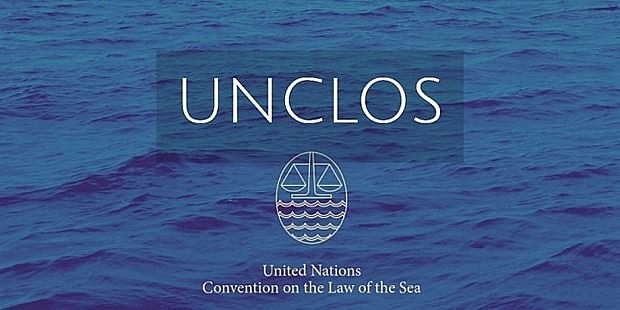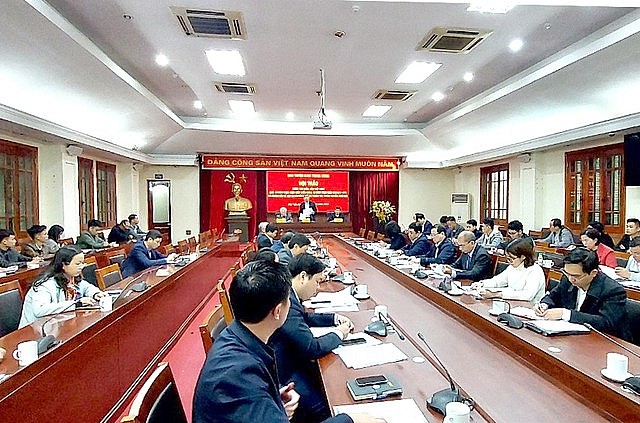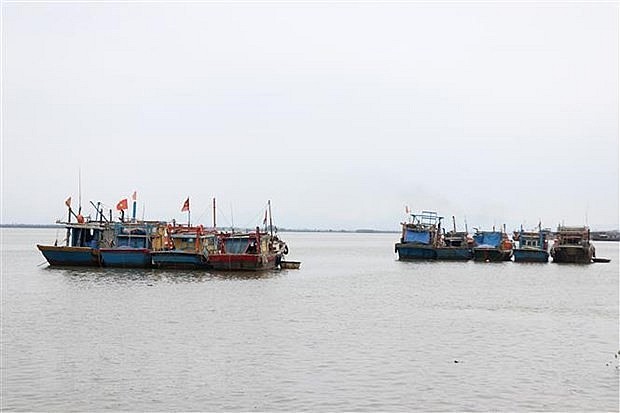
|
| Ratified by 168 parties, UNCLOS has become a legally significant document. [Photo: Unclos.jpg] |
An international conference was held in Hanoi on December 8 to commemorate the 40th anniversary of the adoption of the 1982 UNCLOS,
Nhan dan (People) newspaper reported.
The event, organized by the Ministry of Foreign Affairs, was attended by 150 delegates from ministries, sectors, coastal localities, and representative bodies of ASEAN countries in Vietnam.
In his remarks, Deputy Foreign Minister Nguyen Minh Vu emphasized that UNCLOS, which has been ratified by 168 parties, is a legally significant document that holds great importance, following only the UN Charter, and is considered a “constitution of the seas and oceans.”
The convention provides a comprehensive international legal framework that governs the rights and obligations of all states, regardless of whether they are coastal or landlocked, in terms of the use of the seas and the management, exploitation, and conservation of marine resources.
UNCLOS is a comprehensive international legal foundation that establishes sea boundaries, sovereignty, territorial rights, and jurisdiction over maritime areas, as well as governing activities at sea. It also includes compulsory dispute settlement mechanisms to peacefully resolve differences related to the interpretation and application of UNCLOS among nations.
The conference featured panel sessions highlighting the special values of UNCLOS and Vietnam’s implementation of the convention.

|
| The event, organized by the Ministry of Foreign Affairs, was attended by 150 delegates from ministries, sectors, coastal localities, and representative bodies of ASEAN countries in Vietnam. [Photo: VGP] |
In their remarks sent to the workshop, Tommy Koh, former President of the third UN Conference on the Law of the Sea, and Vladimir Jares, Director of the UN Division for Ocean Affairs and the Law of the Sea, highlighted the importance of UNCLOS and Vietnam’s contributions to the drafting and implementation process of UNCLOS.
Participants agreed that over the past 40 years, UNCLOS has not only served as a comprehensive constitution for the oceans, but has also contributed to the establishment and protection of the international legal order in the seas and oceans, as well as the maintenance of peace, security, stability, and international cooperation at sea.
They acknowledged Vietnam’s bordering the South China Sea (Bien Dong Sea) and its membership in UNCLOS, which has made Vietnam fully aware of the role and importance of the seas for national peace, security, and development.
The participants also emphasized the importance of respecting and fully and responsibly implementing the regulations of UNCLOS, protecting the legal order of the seas and oceans, and promoting cooperation amid complex developments in the South China Sea.

|
| Fishing vessels of Quang Tri province [Photo: VNA] |
In an interview with the Vietnam News Agency, Prof. Carl Thayer from the University of New South Wales, Australia, stated that Vietnam has an extensive coastline of 3,444 km (excluding offshore features). UNCLOS provides the legal basis for Vietnam to establish the coordinates for its territorial sea, contiguous zone, Exclusive Economic Zone (EEZ), and continental shelf, as well as to peacefully resolve disputes with its neighboring countries.
UNCLOS provides a comprehensive legal framework for ocean governance, incorporating customary international law and new legal concepts. It is often referred to as the “Constitution for the Oceans,” replacing a patchwork of legal claims and practices among coastal states by clearly defining the limits of the territorial sea, contiguous zone, Exclusive Economic Zone (EEZ), and continental shelf.
UNCLOS was adopted by the Third United Nations Conference on the Law of the Sea and was opened for signature, along with the Final Act of the Conference, in Montego Bay, Jamaica, on December 10, 1982. The Conference was convened in accordance with General Assembly resolution 3067 adopted on November 16, 1973, as stated by the UN Treaty Collection.








